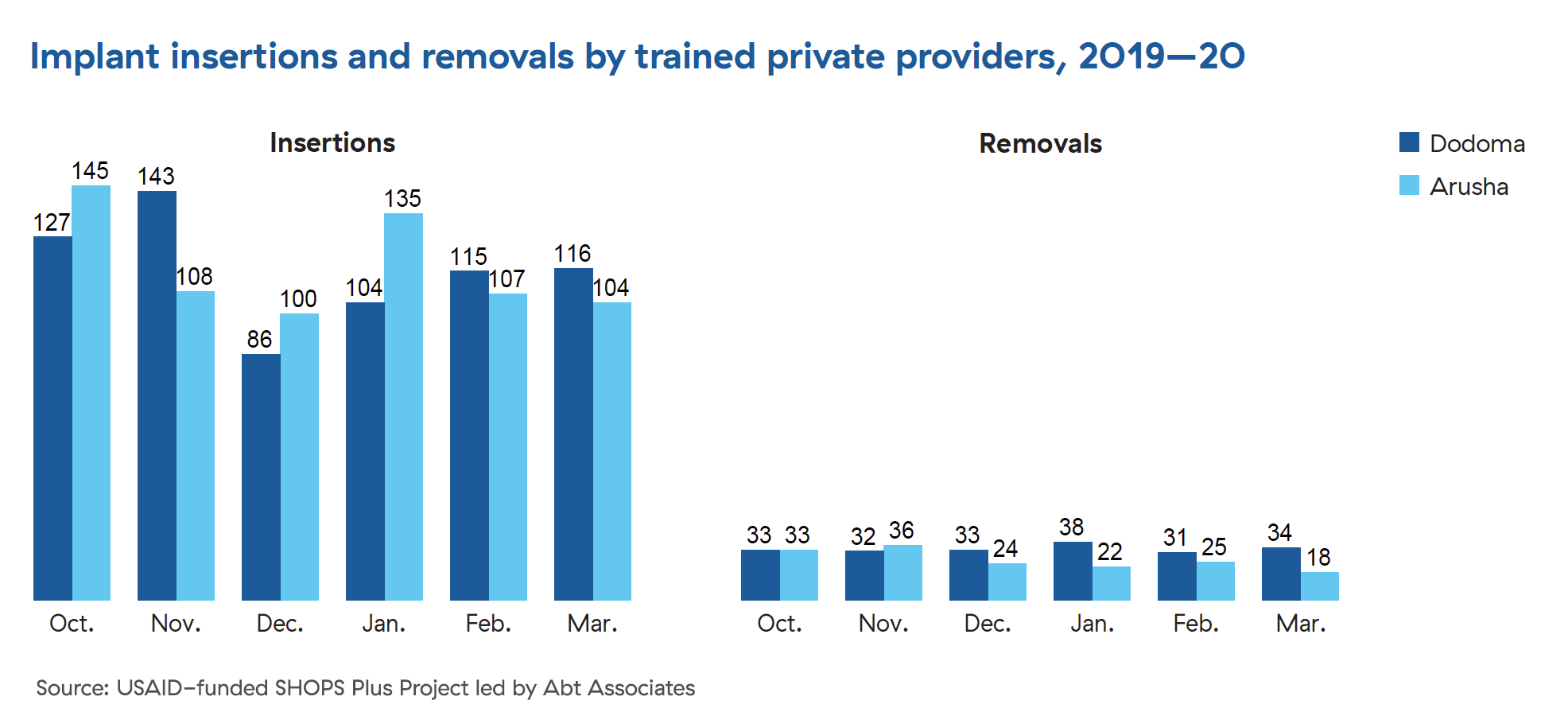Improving access to implants through the private sector in Tanzania
SHOPS Plus led an activity in Tanzania that increased the availability of implant services in the private sector through provider training and reliable distribution for commodities.
A new brief, Improving Access to Implants through the Private Sector: Lessons from Tanzania, describes the activity and its outcomes.
The project found that private providers can quickly start delivering implants when commodities and training opportunities are made available through a partnership with the public sector, but these approaches may be difficult to sustain over the long term.
Market-based solutions involving commercial channels for implants are likely needed to increase the delivery of this method through for-profit providers who typically refer their clients to public clinics or those run by faith-based organizations who have ready access to implants.
East African countries have seen remarkable growth of implants in recent years, largely made possible by the Implant Access Program,” explains Françoise Armand, the brief’s author. “However, private providers in low- and middle-income countries cannot easily access them because implants are mostly distributed through donor and NGO procurement channels.”
SHOPS Plus worked with the Tanzania Ministry of Health, the Private Nurses and Midwives Association of Tanzania, and the Evangelical Lutheran Church in Tanzania to identify and train 39 facility-based private health providers in long-acting reversible contraceptive services. The two-week training program covered all family planning methods. Trainers worked with the Ministry of Health and district health offers to receive implants from a public facility at no cost.
In the six months following the training, providers voluntarily inserted 1,390 implants and removed 359 implants, averaging 232 insertions and 60 removals per month (see graph).

In addition to the public supply option, SHOPS Plus explored the feasibility of a private distribution channel as a way to make supply more sustainable, approaching potential private distribution partners. However, project staff found that there is no demand for even a low-price commercial implant and determined that the private option would not be a viable solution at that time.
In the brief, SHOPS Plus offers the following recommendations:
- Allow providers to charge realistic prices. In addition to enabling providers who receive free commodities to charge a reasonable fee, a recommended long-term solution is to use demand-side financing that does not depress service prices in the private sector.
- Use a more targeted approach in distributing free implants. A strong rationale for strengthening private facilities is that their clients are able to pay for services and should not be referred to the public sector, where resources are scarce. The distribution of free commodities to private facilities should be limited to those serving the poor or operating in underserved areas.
- Progressively transition donor-supported training programs to more sustainable options. To be sustainable, training programs must be affordable and adapted to the private practice context.
- Address the lack of commercial distribution channels for implants globally and locally. SHOPS Plus recommends engaging implant manufacturers, institutional partners, and local private entities to develop commercial channels for implants in low- and middle-income countries.